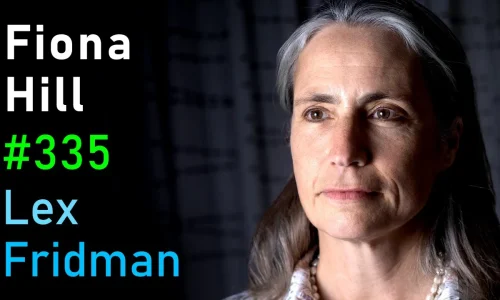See all Lex Fridman transcripts on Youtube

Fiona Hill: Vladimir Putin and Donald Trump | Lex Fridman Podcast #335
3 hours 19 minutes 24 seconds
🇬🇧 English

Omnivision Solutions Ltd
- Getting Started
- Create Transcript
- Pricing
- FAQs
- Recent Transcriptions
- Roadmap